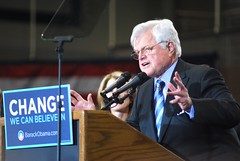AP English Language terms "R"-"S" Flashcards
Terms : Hide Images [1]
| 6438013125 | refute | Prove to be false |  | 0 |
| 6438013126 | rhetoric | The art of using language effectively and persuasively |  | 1 |
| 6438014680 | repetition | A technique in which a sound, word, phrase, or line is repeated for emphasis or unity |  | 2 |
| 6438016612 | rhetorical question | A question asked merely for rhetorical effect and not requiring an answer since it is already understood |  | 3 |
| 6438016613 | satire | A literary work that criticizes human misconduct and ridicules vices, stupidities, and follies. |  | 4 |
| 6438018905 | symbol | A thing that represents or stands for something else |  | 5 |
| 6438018906 | speaker | A person who delivers/writes a text for an audience |  | 6 |
| 6438020118 | subject | In rhetoric, the topic addressed in a piece of writing. |  | 7 |
| 6438022467 | synecdoche | a figure of speech in which a part is made to represent the whole or vice versa |  | 8 |
| 6438022468 | syllogism | A form of deductive reasoning consisting of a major premise, a minor premise, and a conclusion (ex: All trees that lose their leaves are deciduous. Maple trees lose their leaves. Maple trees are deciduous). |  | 9 |
| 6438024765 | syntax | Sentence structure; the way words are arranged. (Ex: The blue sky beckoned her. vs. She was beckoned by the blue sky.) |  | 10 |
| 6438034113 | seminal | original, ground-breaking, important |  | 11 |
| 6438049040 | simile | A comparison of two things using "like", "as", or "than" |  | 12 |
| 6527757449 | stream of consciousness | a style of writing in which the author tries to reproduce the random flow of thoughts in the human mind |  | 13 |
| 6527790547 | soliloquy | A dramatic or literary form of discourse in which a character talks to himself or herself or reveals his or her thoughts without addressing a listener. |  | 14 |
| 6690288477 | synesthesia | describing one kind of sensation in terms of another ("a loud color", "a sweet sound", "taste the pain"); stimulation of one sensory or cognitive pathway leads to automatic, involuntary experiences in a second sensory or cognitive pathway |  | 15 |
| 6690307756 | Paraleipsis | an apparent omission by which a speaker artfully pretends to pass by what he really emphasizes; pretending to say nothing about something one goes on to say quite a bit about ("I need not mention", "I really shouldn't say") |  | 16 |
